Snoring can affect anyone, but searching for an effective anti-snoring device often comes with unique considerations for women. With a range of products on the market—each promising restful sleep—it’s pivotal to understand how specific devices address the root causes of snoring in women, from physiological factors to sleep positions. Women looking for relief from snoring need to weigh the functionality and comfort of such devices while keeping an eye on safety and quality standards.
Choosing the right anti-snoring device goes beyond simply picking a popular product. It involves carefully comparing different devices, such as nasal dilators, CPAP machines, and mandibular advancement devices, to find one that aligns with the individual’s needs and lifestyle. Women should consider the durability, reusability, and ease of use of anti-snoring products alongside the cost and value they offer. Consumer reviews and expert recommendations provide valuable insights into the effectiveness of these devices, guiding women to make informed choices that will improve their sleep quality and overall health.
Key Takeaways
- Anti-snoring devices cater to women’s specific needs by addressing various causes of snoring.
- Selecting the right product involves comparing types, safety, and user experiences.
- Accurate information and reviews guide women to an informed anti-snoring device choice.
Table of Contents
Understanding Snoring and Its Effects on Women
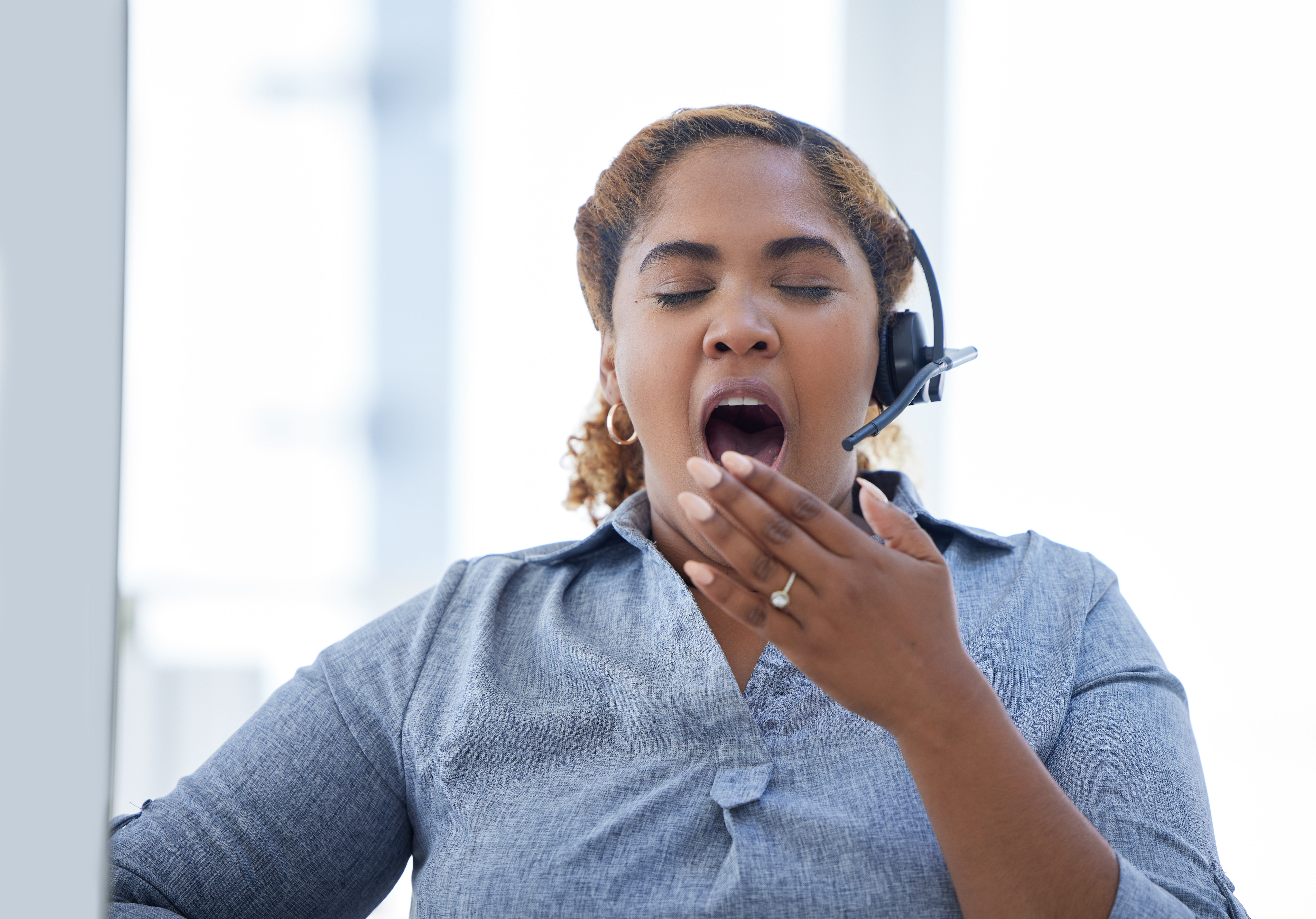
Snoring is not merely a nuisance but can indicate deeper health concerns, particularly for women. This condition is often linked with obstructive sleep apnea, which can pose serious health risks.
Snoring and Women’s Health
In women, snoring and the related condition, sleep apnea, can lead to chronic health issues if untreated. Obstructive sleep apnea, more prevalent in snorers, is characterized by pauses in breathing during sleep due to throat muscle relaxation that blocks the airway. Women experiencing frequent snoring or diagnosed with sleep apnea may face an increased risk of heart disease, stroke, and hypertension. Sleep disruptions caused by snoring can also lead to daytime fatigue, affecting concentration and mood.
The Science of Snoring: Airway, Throat, and Breathing
Snoring occurs when air flows past relaxed tissues in the throat, causing the tissues to vibrate during breath. This can be due to factors such as the throat’s anatomy, obesity, which contributes to reduced airway size, and muscle tone, which diminishes with age. Snoring patterns may vary; some women may snore softly, while others may experience louder, more disruptive snoring, indicating a more severe condition such as sleep apnea. Addressing snoring is crucial not only for improving sleep quality but also for maintaining overall health.
Types of Anti-Snoring Devices Suitable for Women
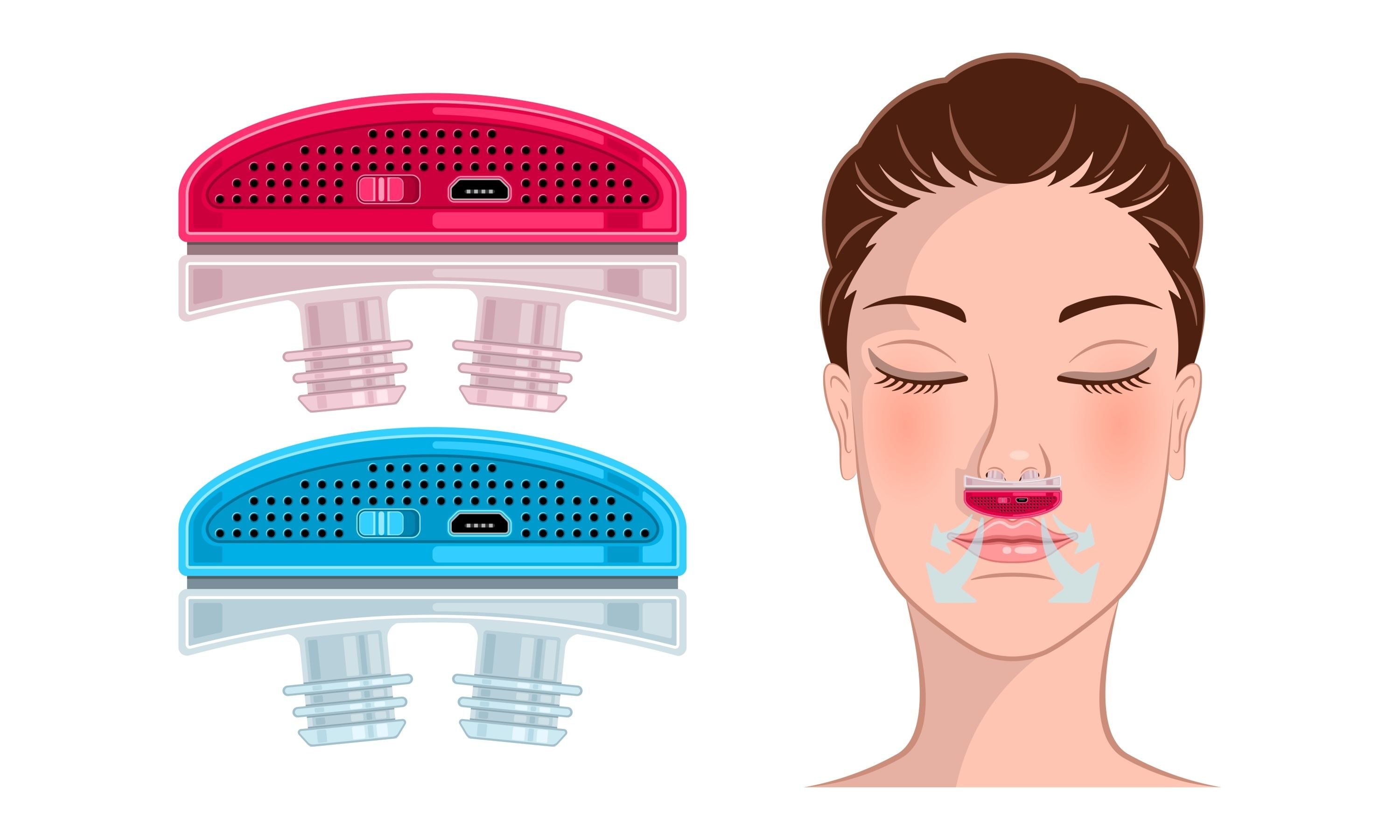
When considering anti-snoring devices for women, choosing ones that are comfortable, effective, and specifically tailored to address different causes of snoring is essential. Devices range from mouthpieces to high-tech gadgets that cater to individual needs and preferences.
Mouthpieces and Mandibular Advancement Devices
Mouthpieces, or mandibular advancement devices (MADs), are a standard solution for snoring women. They move the lower jaw slightly forward, which helps keep the airway open during sleep. The Zquiet Anti-Snoring Mouthpiece is a notable example. A tongue-retaining device can also hold the tongue in place, preventing it from blocking the airway.
Nasal Devices for Improved Airflow
Nasal devices, such as nasal strips and dilators, are designed to expand the nasal passages for better airflow. Breathe Right Nasal Strips are an effective, noninvasive option. Nose vents also fall into this category, providing an internal way to keep the nostrils open at night.
Snoring Pillows and Sleep Position Aids
Snoring pillows can be an excellent choice for women who want to tackle snoring without a device. These pillows are engineered to encourage sleeping in positions that promote open airways. The right snoring pillow can make a considerable difference for those who snore predominantly when lying on their backs. Please check out our pillow & bedding section for more information.
Smart Snoring Solutions and Wearables
For a high-tech approach, Smart snoring solutions and wearable devices offer innovative ways to reduce snoring. The Smart Nora, for example, detects snoring sounds and gently adjusts the pillow’s position to stimulate the throat muscles, allowing natural breathing to resume. Wearables often use biofeedback and other technologies to encourage side sleeping or provide gentle alerts to change sleeping positions.
Choosing the Right Anti-Snoring Solution

Women should prioritize comfort, adjustability, and ease of maintenance when seeking the ideal anti-snoring device. Additionally, they ought to consider the opinions of healthcare providers, ensuring the chosen solution is effective and aligns with their needs.
Considerations for Comfort and Adjustability
Comfort takes precedence as a well-fitting device can significantly enhance sleep quality. Women should look for adjustable features that allow for a personalized fit. SnoreRx®, for instance, offers a highly customizable snoring mouthguard specifically designed to adapt to the user’s mouth structure, minimizing discomfort.
Assessing Reusability and Maintenance
Reusability is a factor affecting long-term value when choosing an anti-snoring device. Some devices, including tongue retention or mandibular advancement devices, are meant for repeated use and require regular cleaning. Conversely, products like nasal strips are single-use. Women should weigh the convenience against the ongoing cost when selecting between disposable or reusable options.
Healthcare Provider Recommendations
Consulting with a healthcare provider ensures the anti-snoring device aligns with one’s health conditions. Medical experts can recommend products to maintain an open airway or endorse those that facilitate optimal sleeping positions. Such personalized advice is invaluable in finding an anti-snoring solution that reduces both efficacy and snoring.
Addressing Specific Causes of Snoring in Women
Addressing the specific causes of snoring often involves targeted solutions in women. This section explores practical approaches tailored to sleep position, anatomical factors, nasal congestion due to allergies, and lifestyle factors influencing snoring.
Solutions for Sleep Position and Anatomy
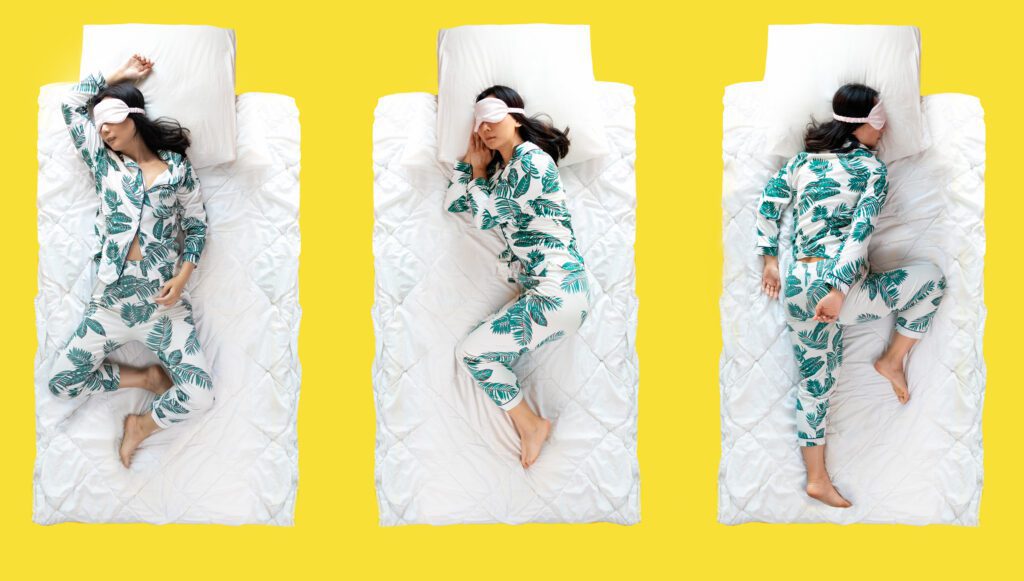
Sleep Position: Changing sleep position can have a significant impact on snoring in women. Side sleeping is recommended to reduce the effects of gravity on the throat, which can narrow the airway and cause snoring. Pillows designed for side sleepers can help maintain this position throughout the night.
Anatomical Considerations: A deviated septum can contribute to snoring by obstructing nasal airflow. In such cases, nasal strips or external nasal dilators may open the nasal passages. For some women, a mandibular advancement device can also be helpful, as it moves the jaw forward to widen the airway.
Dealing with Allergies and Nasal Congestion
Allergies often lead to nasal congestion, exacerbating snoring issues. Maintaining an allergen-free bedroom environment using hypoallergenic bedding and air purifiers can provide relief. In addition, over-the-counter or prescription nasal decongestants and antihistamines may effectively address congestion caused by allergies.
Lifestyle Modifications
Lifestyle factors play a crucial role in managing snoring. Women are advised to limit alcohol consumption, especially before bedtime, as it can relax the throat muscles, leading to snoring. Regular physical activity can also alleviate snoring by promoting healthy weight management and reducing the presence of fatty tissue around the neck area that can restrict the airway.
Safety and Quality Standards in Anti-Snoring Devices
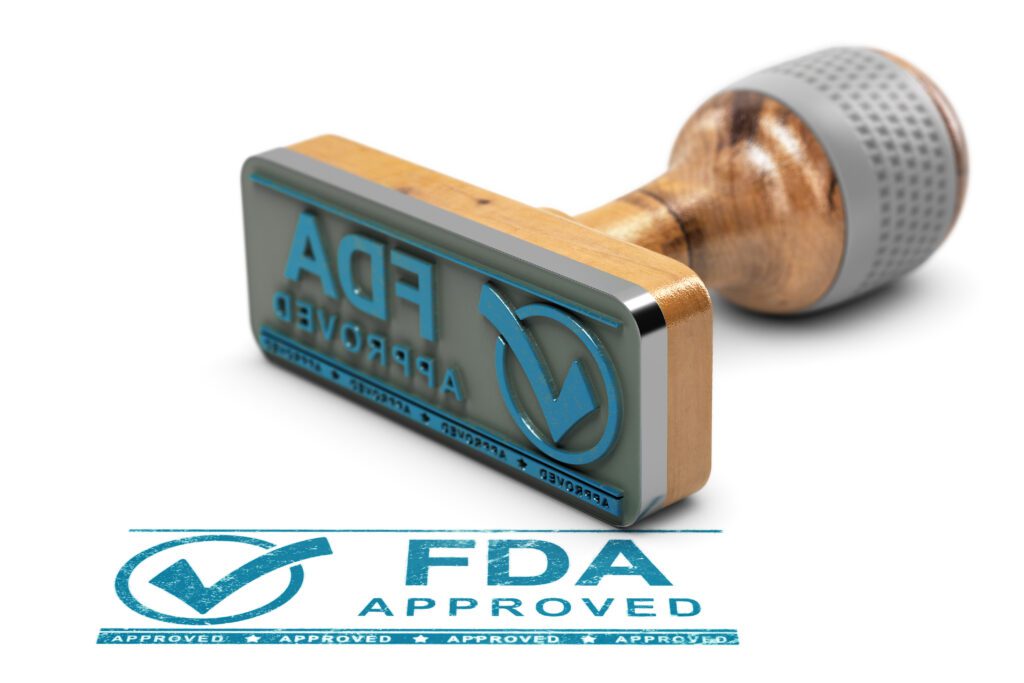
Safety and quality are paramount when it comes to anti-snoring devices for women. Consumers should look for FDA-cleared options that have undergone rigorous testing for efficacy and safety. Additionally, customizable features can contribute to the device’s comfort and effectiveness.
FDA-Cleared Options and Safety Considerations
FDA-cleared anti-snoring devices have met specific criteria set by the U.S. Food and Drug Administration, including clinical testing to confirm user safety. This gives users assurance that the product has been rigorously evaluated.
- Safety Considerations
- Noninvasive devices such as nasal strips can benefit those seeking a simple solution without side effects.
- Oral appliances should not cause pain or significant discomfort. Proper use often requires a custom fit by a dental specialist.
- Devices that involve electronic components should have failsafe mechanisms to prevent any potential hazards.
Customizable Features for an Individual Fit
The effectiveness of an anti-snoring device often hinges on how well it fits an individual’s unique anatomy. Customizable options can significantly increase the device’s comfort and success rate.
- Customizable Feature Examples:
- Adjustable straps for headgear
- Boil-and-bite technology for mouthpieces that allows users to create a personalized fit
- Interchangeable nasal dilator sizes
- Devices utilizing customizable features are more likely to be used consistently, as they can be tailored to meet individual needs and preferences, thereby increasing the user’s overall safety and efficacy.
Comparing Costs and Value of Anti-Snoring Devices
When examining the landscape of anti-snoring devices, it’s crucial to consider both the financial investment and the potential benefits. The goal is to find a solution that offers a good balance between cost-efficiency and effectiveness.
Balancing Price and Effectiveness
Affordable anti-snoring devices such as nasal strips offer a temporary and noninvasive remedy, potentially suitable for light snorers. They are typically priced lower and can be a good starting point for those seeking immediate relief. However, their effectiveness may vary from person to person.
Conversely, expensive options like custom-fitted anti-snoring mouthpieces can offer a more personalized solution. They tend to be more successful in reducing snoring by adjusting the jaw position but come with a heftier price tag. Consumers must weigh if the increased cost correlates with a substantial uptick in sleep quality.
Investing in Durable and Long-Lasting Devices
Durability is key when considering the value of an anti-snoring device. Even if effective, one-time-use products may lead to a higher overall expense than initially expected. Devices like mandibular advancement devices or tongue stabilizing devices, while more costly upfront, may provide better long-term value due to their longevity and reusable nature.
Investing in high-quality materials and robust design can result in a device that effectively diminishes snoring and withstands the test of time, offering sustained value for money spent. Women searching for anti-snoring solutions should weigh the initial cost against the expected lifespan and efficacy of the device to ensure a beneficial investment.
User Experience and Product Reviews
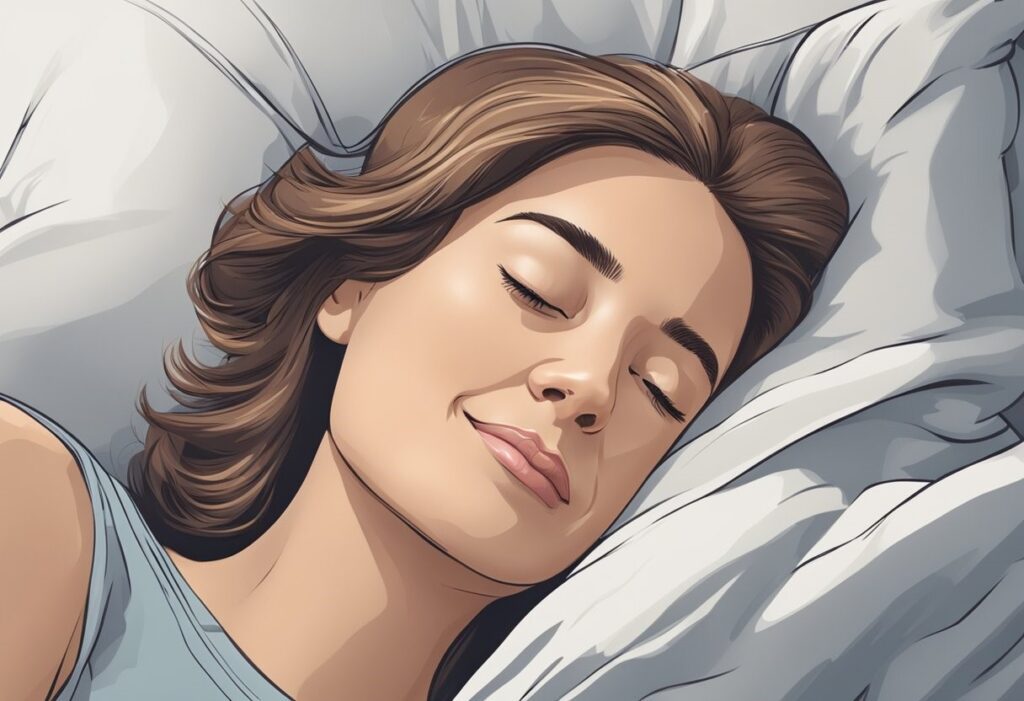
In evaluating the best anti-snoring devices, user testimonials and expert reviews are crucial. They provide insights into the efficacy and comfort of the products from the perspectives of women who experience snoring issues.
Testimonials from Women with Snoring Issues
Many women have found relief from snoring using various devices, reporting significant improvements in sleep quality. On platforms like NBC News, devices such as the Snore Rx mouthguard and Breathe Right nasal strips are often praised for their effectiveness and ease of use. Notably, the adjustable nature of mouthguards is appreciated by women seeking a personalized solution, while others prefer the simplicity and non-invasiveness of nasal strips.
Editor’s Picks and Top Recommended Products
Editors at Forbes have curated a list of anti-snoring devices, including the Zquiet Anti-Snoring Mouthpiece, for its quick adaptability to the user’s mouth. The Best Anti-Snore Pillows, like the Tempur-Pedic, have garnered attention for providing a balance of support and elevation, which can be integral for reducing snoring. Additionally, experts recognize smart devices such as the Smart Nora for their innovative approach to tackling snoring without requiring anything to be worn by the user.
Additional Considerations for Anti-Snoring Devices
Selecting an anti-snoring device is a step towards better sleep, but it’s crucial to consider potential side effects and how using such devices might affect one’s bed partner. Comfort, efficacy, and relationship impact are all essential factors.
Dealing with Side Effects and Discomfort
Some anti-snoring devices may be uncomfortable for certain women due to their fit or the nature of the material. Before settling on a device, one should assess the level of discomfort—like jaw soreness from a mouthpiece or skin irritation from adhesive strips—before settling on a device. Duration of use often correlates with adjusting to the device, so one might experience less discomfort over time.
Impact on Bed Partner and Relationship
The choice of an anti-snoring device can significantly affect one’s bed partner. It can turn restless nights into restful sleep for both individuals. However, too noisy or intrusive devices could disrupt the bed partner’s sleep instead. A relationship might benefit from open communication about the changes each person experiences, ensuring mutual understanding and support.
Next Steps after Selecting an Anti-Snoring Device
Once a woman has selected an anti-snoring device, she should monitor its effectiveness and prepare for an adjustment period. These steps are crucial to ensure the device helps reduce snoring and improves sleep quality.
Monitoring Effectiveness over Time
One should track its effectiveness over several nights to gauge whether the anti-snoring device is providing the desired results. It’s advisable to keep a sleep diary or use a sleep-tracking app. In the diary, they should note:
- The number of snoring episodes
- Sleep duration
- Any changes in sleep quality
This record will help them see patterns and determine if the device significantly impacts them. If she observes little to no improvement, consulting with doctors or sleep specialists for further advice is recommended.
Adjustment Period and Follow-ups with Professionals
When using a new anti-snoring device, women should expect an adjustment period. Comfort levels and effectiveness may vary as the body adapts. Essential points to consider:
- Initial discomfort is normal. It usually subsides within a few days to a week.
- Consistency is key. The device must be worn regularly to determine its true efficacy.
If issues persist or if they have concerns about their snoring, follow-ups with a healthcare provider should occur. These professionals can offer guidance, assess if the anti-snoring device is fitted correctly, and, if necessary, adjust it. They can also determine whether the snoring is symptomatic of a more severe condition, such as sleep apnea, which may require a different therapeutic focus.
Final Thoughts on Anti-Snoring Devices for Women
When selecting an anti-snoring device, women should consider comfort, effectiveness, and specific design features conducive to their needs. Experts often recommend options that address both the mechanical and anatomical factors of snoring. For instance, mandibular advancement devices, which put the jaw forward, can be effective, as they help keep the airway open during sleep.
Nasal products, such as nasal dilators and strips, are typically noninvasive and can benefit women experiencing nasal congestion or snoring originating from their nasal passages.
Sleep positioning aids are noteworthy for guiding users into side-sleeping positions, which can significantly reduce snoring. Furthermore, products like the Smart Nora use innovative technology to attend to snoring, using a pillow insert that adjusts when snoring is detected.
Women interested in reusable options should also consider the long-term cost-effectiveness of their choice. Single-use devices may offer convenience but can be less economical over time.
Women should consult with a healthcare professional before starting any snoring intervention, especially if they suspect they may have sleep apnea or another sleep-related disorder. The right advice and correct fit can dramatically increase the success of the chosen anti-snoring device.
Frequently Asked Questions

When searching for the best anti-snoring devices, women often have specific concerns such as FDA approval, fit for smaller mouths, and effectiveness of various types. The following FAQs address these pertinent issues.
What types of anti-snoring devices are FDA-approved for females?
The FDA approves several types of anti-snoring devices for women, including mandibular advancement devices (MADs) and tongue stabilizing devices (TSDs). These are designed to maintain open airways during sleep.
How do anti-snoring nose clips compare to other snoring solutions for women?
Anti-snoring nose clips are less intrusive than other solutions. They work by opening nasal passages, so they may not be as effective for women whose snoring is caused by throat vibrations.
Which anti-snoring mouthpiece is recommended for women with small mouths?
Devices like the VitalSleep Anti-Snoring Mouthpiece can be adjusted for size, making them suitable for women with small mouths. Their adaptability ensures both comfort and effectiveness.
Can an anti-snoring pillow effectively alleviate snoring issues in women?
Yes, anti-snoring pillows can help women by ensuring proper head and neck alignment, which reduces airway obstruction and can thus alleviate snoring.
Are there any consumer reports that highlight the best anti-snoring products for women?
Consumer reports and reviews, like those found on Good Housekeeping, provide insights into user experience with various anti-snoring products, helping women choose the best device for their needs.
Does the VitalSleep anti-snoring mouthpiece perform well for females?
The VitalSleep Anti-Snoring Mouthpiece is generally well-reviewed by users. It is known for its adjustability and custom fit, which can benefit women seeking a reliable snoring solution.

